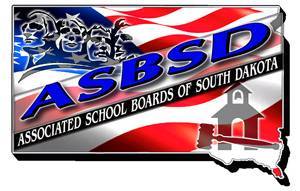A proposal for private school scholarships to be funded by public dollars was signed by Gov. Dennis Daugaard last week, just days before the legislature reconvenes for veto day (3/29).
Senate Bill 159, which uses tax credits from the insurance company premium and annuity tax to fund private school scholarships, passed the Senate on a vote of 24-11 in February and then passed the House on a vote of 45-23 during the final week of the legislative session, despite having been tabled by the House Appropriations committee earlier in the week.
SB 159 would provide $2 million in scholarship dollars for students, who meet set income standards, through donations from insurance companies, who can then collect a tax credit up to 80 percent. Funding for the scholarships would be distributed by one or more independent organizations.
Before signing the bill, Gov. Daugaard requested an advisory opinion from the South Dakota Supreme Court on SB 159’s constitutionality.
“Because much of the legislative debate surrounding the passage of SB 159 concerned its constitutionality, I wish to be certain of the constitutionality of SB 159,” Gov. Daugaard wrote in his letter of request for an advisory opinion to the state’s Supreme Court.
The state’s high court declined to offer an opinion, citing the constitutionality question did not raise an important question of law related to the governor exercising his executive power and did not rise “upon solemn occasions.”
“Both questions raise important issues of tax and education policy with the potential for far reaching implications not easily resolved under the existing time constraints and without the benefit of full briefing and argument by interested parties,” the Supreme Court wrote in response to the governor’s request.
The court also noted in its response a group known as the Institute for Justice filed a brief with the court in support of the bill’s constitutionality.
ASBSD opposed the bill on the grounds its action is prohibited by the state’s constitution, which states no state appropriation of land, money, property or credit may be used to fund non-public, sectarian education.
“Once you crack this door open…I think you get to an end where I don’t think we want to go,” ASBSD Executive Director Wade Pogany testified during the bill’s House committee hearing.
“In South Dakota we spend public fund for public schools.”
Rep. Timothy Johns reiterated the unconstitutionality of the bill saying South Dakota’s state constitution prohibits aid “in every form” for non-public, sectarian education purposes.
Bill supporter Rep. Brian Gosch, who introduced the smokeout of the bill on the House floor because it “just didn’t get enough votes” in committee, said legal challenges in 16 other states with similar policy proposed in the bill had been defeated.
However, ASBSD Lobbyist Dick Tieszen noted during the bill’s House committee hearing there was “no state with the same language” as South Dakota’s constitution.
“We are unique,” Tieszen testified. “South Dakota’s founders determined they wanted to be more restrictive.”
The bill also circumvents transparency.
Any insurance company contributing to the scholarship fund would remain anonymous “unless the company deems otherwise” therefore keeping South Dakotans in the dark on who is diverting their tax obligation to the state to fund private, sectarian education scholarships.
“Why does there need to be secrecy?” Rep. David Anderson asked. An amendment requiring disclosure of the donators was defeated.
Fiscal neutrality was the phrase of choice for SB 159 supporters, as it would set the average private school scholarship amount to be equal to 82.5 percent the cost of a student attending a public school. That model, however, is based on the current funding formula’s per-student allocation, which is no longer applicable with the passage and signing into law of Senate Bill 131.
Rep. Fred Romkema noted during the House floor debate the fiscal note that accompanied the bill estimated a lower percentage of students being eligible than he believed would actually qualify. Rep Romkema noted the bill could actually result in a $700,000 to $1 million loss for the state.
“I see this as a conflict between the common good and special interests,” Rep. Romkema said.
For updates on the future of the legislation, check out the ASBSD Blog, Twitter feed and Bill Tracker page.
